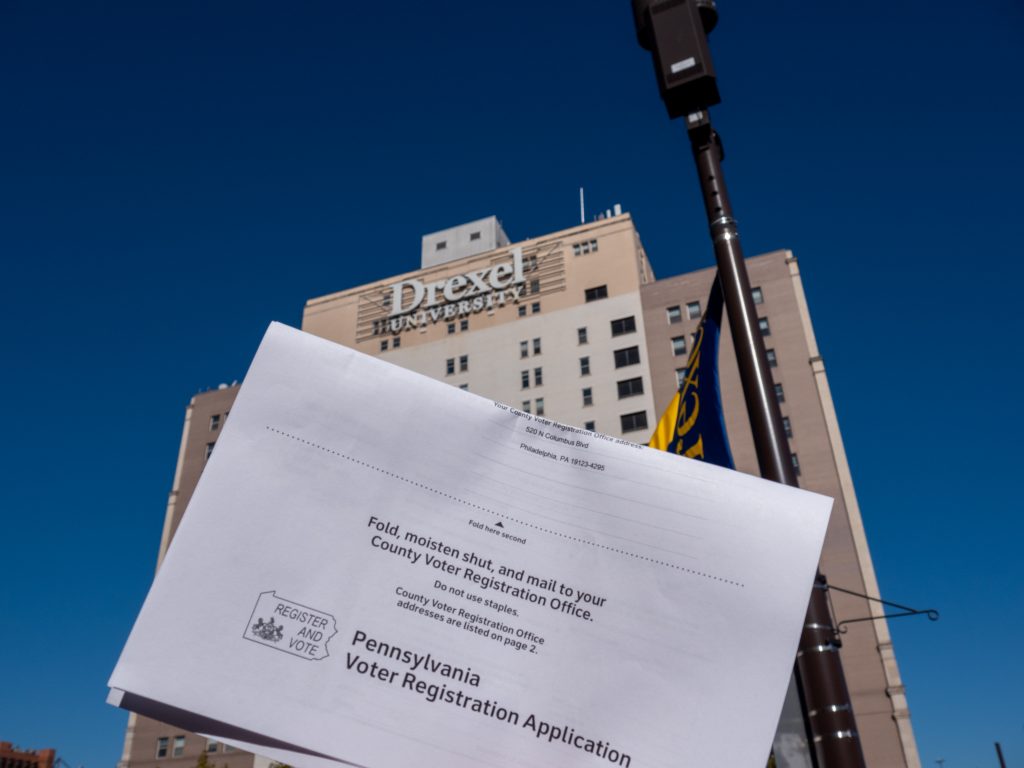
In order to get on the ballot in the state of Pennsylvania, you must first collect signatures from voters during a specific window of time in the winter. The number of required signatures is dependent on the office a candidate is seeking. As an example, a candidate attempting to run for attorney general in the state of Pennsylvania must first collect 1000 signatures, including 100 signatures from five different counties. That is a lot of signatures for a political race many people do not pay attention to. This is an even bigger hurdle to overcome when you factor in the fact that many of the signatures collected will not be counted because of random errors or legal challenges.
Jared Solomon, a candidate for Pennsylvania Attorney General, spoke with me a bit about petition requirements stating, “The signature requirement indicates a candidate’s level of support. It forces us to engage on the ground with voters to hear their concerns and find ways to do better. Petitions are the beginnings of our Democratic process and make candidates and current elected officials responsive to the issues of the day.”
Still, the number of signatures required to get on the ballot is a subject of debate. While it is true that petitions to get on the ballot force candidates to engage with voters, many candidates have been prevented from running for public office because they failed to collect enough signatures within the signature collection timeframe.
Former Philadelphia City Council President Darelle Clarke announced his intent to not seek re-election last year. The timing of his announcement limited the ability of candidates to collect enough signatures to appear on the ballot. Despite six other candidates collecting signatures for a chance at Clarke’s city council seat, only Jeffrey Young Jr., who began collecting signatures before Clarke’s announced retirement, successfully collected enough signatures to get on the ballot. No Republican challengers were on the ballot, nor would they have stood a chance in the deeply Democratic North Philadelphia district. Even Clarke’s handpicked successor failed to collect enough signatures in time to get on the ballot.
Young was sworn in as a City Council Member last month and will have four years to prove he does, in fact, deserve to be on the council. Still, many voters should be frustrated that the opportunity to choose their representative was taken from them because of the late start many candidates got to collect signatures. Many candidates did not begin collecting signatures out of respect for Darelle Clarke, who had been on the city council since 1999 and was still pondering a run for re-election. There was likely some frustration with Clarke for waiting so long to announce his retirement, but even more frustrating is the requirement to collect signatures in the first place.
In the 2022 Michigan gubernatorial primary election, James Craig, the former Chief of the Detroit Police Department, was disqualified from appearing on the ballot after his campaign failed to collect enough signatures. Despite his front-runner status for the nomination, Craig was removed from the ballot along with several other Republican candidates due to their submission of invalid signatures. Tudor Dixon went on to win the Republican nomination and lost the general election to incumbent Democratic Governor Gretchen Whitmer.
While incumbent governor Gretchen Whitmer has done a fantastic job, the opportunity to select between two strong candidates was unquestionably taken away from Michigan voters. Dixon was known for extreme positions on issues and had never worked in public life. Her career had been primarily in right-wing journalism where she defended the usage of blackface and spread the idea that the George Floyd protests were part of a scheme by Democrats to cause chaos during an election year. While the disqualified Republican candidates were not dream candidates by any stretch of the imagination, they still would have been better than Tudor Dixon. Michigan’s 2022 gubernatorial race, along with Philadelphia’s city council race to replace Darelle Clarke, both show us the drawbacks of signature requirements for ballot access.
When candidates are unable to collect enough signatures for ballot access, they are prevented from running for public office. Some people would argue that this system prevents extremist candidates with limited support from running for office. That argument has been proven false by Tudor Dixon’s ability to get on the ballot. Extremist candidates attract a lot of attention, and unfortunately, many of them have an easier time getting on the ballot than regular people whom you may slightly disagree with.
Add to that the confusing nature of ballot requirements which change depending on the state you live in and the race you are running for, and the process is so confusing that dozens of great candidates have likely never even attempted to run for public office because they simply do not understand where to start. Signature requirements are unfair, and it is time for the state of Pennsylvania to change the way candidates get on the ballot. For the sake of our future, we must allow well-qualified candidates the chance to show themselves to voters; or else the sad day may come when a candidate like Tudor Dixon does win a campaign for governor.


